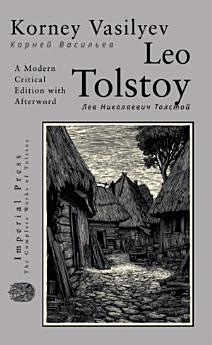Korney Vasilyev
O ovoj e-knjizi
"Korney Vasilyev," originally titled "Корней Васильев" in Russian, was written in 1905 and first published in 1906, appearing in "Круг чтения," Volume I. This realist short story delves into the fraught dynamics of a marriage shattered by infidelity. The central figure, Kornei, in a fit of intense rage, brutally assaults his wife for her unfaithfulness, an act that ignites an equally fierce animosity within her. The narrative then spans many years, during which the couple remains estranged, consumed by mutual hatred, before their hearts soften in their twilight years, leading to a profound, redemptive forgiveness. The story's focus on marital infidelity and the subsequent journey toward forgiveness aligns with Tolstoy's lifelong exploration of human relationships and moral redemption, demonstrating a consistent thematic interest from his early works on family life to his later, more explicitly didactic narratives.
Published in 1906, "Korney Vasilyev" belongs to Tolstoy's later period of creative output, a time when his focus had shifted profoundly towards moral, religious, and philosophical inquiries, often expressed through shorter narratives and essays. The story's themes of domestic strife, violence, and the ultimate quest for reconciliation reflect the societal tensions and moral debates prevalent in early 20th-century Russia, a period marked by significant social upheaval and a burgeoning interest in ethical reform. Its publication in 1906, a year after the 1905 Revolution, places it within a period of intense social and political ferment in Russia, where themes of state injustice and rebellion held particular resonance.
This critical reader's edition presents a modern translation of the original manuscript, crafted for the modern reader with clean, contemporary language and simplified sentence structures that clarify his complex Russian phrasing and specific antiquated references. Supplementary material enriches the text with autobiographical, historical, and linguistic context, including an afterword by the translator on Tolstoy’s personal history, impact, and intellectual legacy, an index of the philosophical concepts he employs—emphasizing Existentialism and influence by Schopenhauer—a comprehensive chronological list of his published writings, and a detailed timeline of his life, highlighting the personal relationships that shaped his philosophy.




